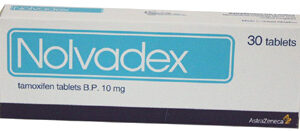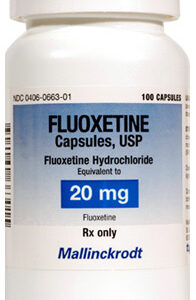Fluoxetine Overview
Fluoxetine, commonly known by its brand name Prozac, is a widely prescribed antidepressant belonging to the class of selective serotonin reuptake inhibitors (SSRIs). By balancing serotonin levels in the brain, it helps improve mood, sleep, appetite, and energy level while also restoring interest in daily living. Fluoxetine effectively treats various psychological issues, encompassing major depressive disorder, obsessive-compulsive disorder (OCD), panic disorder, and certain eating disorders.
Indications for Use
Fluoxetine is primarily indicated for the treatment of major depressive episodes, OCD, bulimia nervosa, and panic disorder. It may also be utilized in the management of premenstrual dysphoric disorder (PMDD) and in combination therapies for bipolar depression. Off-label, fluoxetine can also support treatment of anxiety, post-traumatic stress disorder (PTSD), and certain phobic states.
Dosage and Administration
The dosage of fluoxetine is tailored to the individual, with initial doses often being lower, gradually increasing based on the patient’s response. Fluoxetine is taken orally, typically once a day in the morning; however, for higher doses, the intake may be divided between morning and noon. It is essential to follow the prescription label and consult with healthcare providers for any adjustments.
Interactions With Other Drugs
Fluoxetine has the potential to interact with various medications. Combinations with monoamine oxidase inhibitors (MAOIs), pimozide, thioridazine, or other drugs that impact serotonin levels, like triptans and other SSRIs or SNRIs, should be avoided due to risk of serotonin syndrome. Fluoxetine can alter the blood levels of certain medications, like tricyclic antidepressants, so dose adjustments and monitoring may be necessary.
Precautions and Warnings
Patients should be aware that fluoxetine can increase the risk of suicidal thoughts, especially when treatment begins or dosages change. It is crucial to monitor for worsening depression or uncharacteristic behavior changes. Caution is advised for those with a history of seizures, bipolar disorder, liver problems, diabetes, or glaucoma, and it should not be abruptly discontinued due to potential withdrawal symptoms.
Adverse Reactions
While aiding in managing mental health issues, fluoxetine may cause side effects. Commonly reported ones include nausea, drowsiness, dizziness, anxiety, insomnia, loss of appetite, tiredness, sweating, and yawning. More severe reactions, though rare, such as serotonin syndrome, severe allergic reactions, and QT prolongation, necessitate immediate medical attention.
Contraindications
Fluoxetine should not be taken by individuals with known hypersensitivity to the medication or any of its components. Concomitant use with MAOIs, thioridazine, or pimozide is contraindicated. Those with a history of serotonin syndrome or neuroleptic malignant syndrome should avoid fluoxetine.
Patient Counseling Information
Prior to initiating treatment, patients must be informed about the potential for experiencing suicidal thoughts, the importance of adhering to prescribed dosages, and the need to communicate any unusual symptoms or concerns to their healthcare provider promptly. Additionally, patients should understand the risk of withdrawal symptoms and the criticality of not ceasing fluoxetine abruptly.
Pregnancy and Lactation
Fluoxetine should only be used during pregnancy if the potential benefits outweigh the risks, as it can be transferred to the fetus. Similarly, while fluoxetine passes into breast milk, the decision to continue or cease breastfeeding or the drug should be made after evaluating the benefits and risks.
Overdose and Treatment
Overdose on fluoxetine can result in symptoms such as nausea, vomiting, seizures, heart problems, and lung issues. If an overdose is suspected, seek immediate medical care. Treatment is generally supportive and includes measures to prevent absorption and accelerate elimination, along with symptomatic relief and monitoring of vital signs.
Pharmacological Profile
Fluoxetine functions by inhibiting the serotonin transporter, leading to increased levels of serotonin in the synaptic cleft and thereby improving neurotransmission. It has a slow onset of action and can take several weeks to achieve the desired clinical effect. Metabolism of fluoxetine occurs in the liver, with its active metabolite, norfluoxetine, and both exhibit long elimination half-lives.
Clinical Trials and Efficacy
Clinical trials have demonstrated fluoxetine’s efficacy in improving symptoms in a variety of mental health conditions. Results show significant benefits over placebo in major depression, OCD, bulimia nervosa, and panic disorder, with some studies also indicating advantages in handling relapse prevention.
Storage and Handling
Fluoxetine must be stored at room temperature, away from direct light and moisture, and out of reach of children. Proper disposal of unused medication is crucial to prevent potential misuse and minimize environmental hazards.
Medication Guide
Accompanying every prescription of Fluoxetine comes a medication guide that provides detailed information on its use, potential side effects, and safety information. Patients are encouraged to review this guide each time their prescription is refilled.
FAQs
Can I drink alcohol while taking fluoxetine?
Alcohol can increase the nervous system side effects of fluoxetine such as dizziness, drowsiness, and difficulty concentrating.
How long does it take for fluoxetine to work?
Some symptoms may improve within a few weeks, but it can take up to 4-6 weeks to feel the full benefit of fluoxetine.
What should I do if I miss a dose?
Take the missed dose as soon as you remember, unless it’s nearly time for your next dose. In that case, skip the missed dose and resume your regular dosing schedule.
Is fluoxetine addictive?
No, fluoxetine is not considered addictive; however, sudden discontinuation may cause withdrawal symptoms.






Reviews
There are no reviews yet.